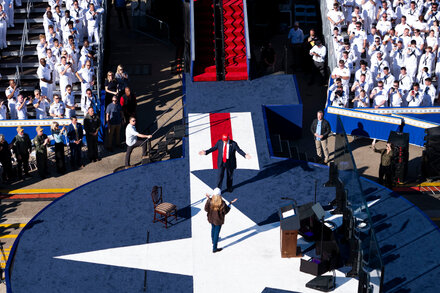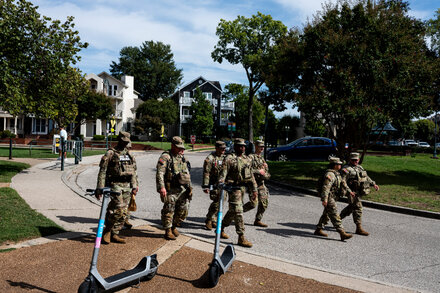
The relationship between former President Donald Trump and the U.S. military has been a multifaceted and often complex subject throughout his presidency and beyond. Characterized by significant policy shifts, rhetorical flourishes, and moments of tension, his tenure saw both staunch support for the armed forces and public disagreements with its leadership.
Upon taking office, President Trump often emphasized a commitment to rebuilding and strengthening the U.S. military. His administration oversaw increases in defense spending and the establishment of the U.S. Space Force in December 2019, marking the first new branch of the armed services since the Air Force was created in 1947.
“We are restoring America’s military might, and we are restoring America’s prestige,” President Trump stated during a speech in 2017, underscoring his focus on military strength and global standing.
However, Trump’s relationship with military leaders and the broader defense establishment was also marked by notable friction. He frequently voiced skepticism about long-standing U.S. foreign policy engagements, often criticizing what he termed “endless wars” and advocating for the withdrawal of American troops from various regions, including Afghanistan, Iraq, and Syria.
Several high-profile military figures, including former Secretary of Defense James Mattis and former White House Chief of Staff John Kelly, both retired Marine generals, departed the administration amidst reports of policy disagreements. Mattis, in his resignation letter, highlighted differing views on alliances and global order.
“My views on treating allies with respect and also being clear-eyed about both malign actors and strategic competitors are strongly held and informed by more than four decades of immersion in these issues,” Mattis wrote in his 2018 resignation letter.
Other points of contention included President Trump’s use of the military in domestic contexts, such as the deployment of federal agents and National Guard troops during protests in 2020, and his controversial pardons for several service members accused or convicted of war crimes.
Post-presidency, Trump has continued to comment extensively on military matters, often criticizing current defense policies and expressing concerns about what he perceives as a decline in military readiness and focus. His rhetoric has often resonated strongly with a segment of military personnel and veterans who share his views on national strength and foreign policy, while drawing criticism from others who uphold traditional military apolitical stances.
Source: Read the original article here.





